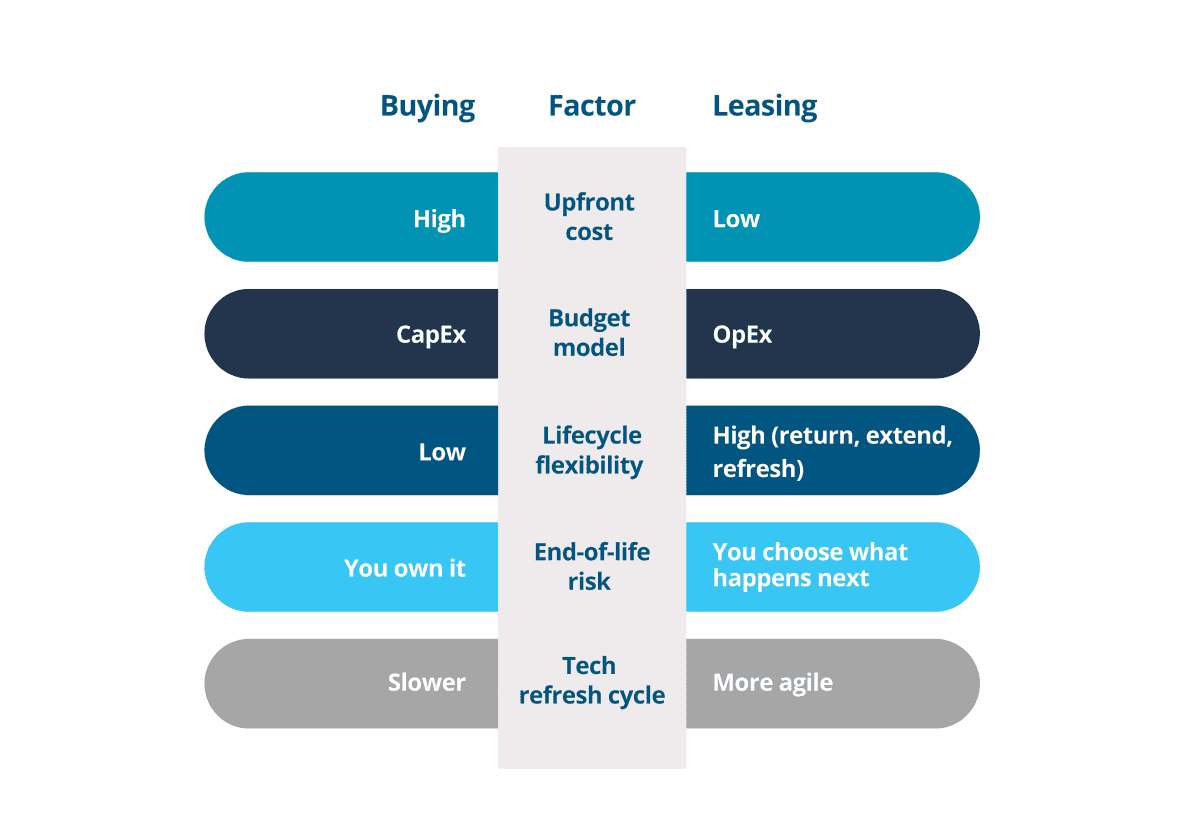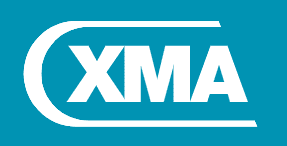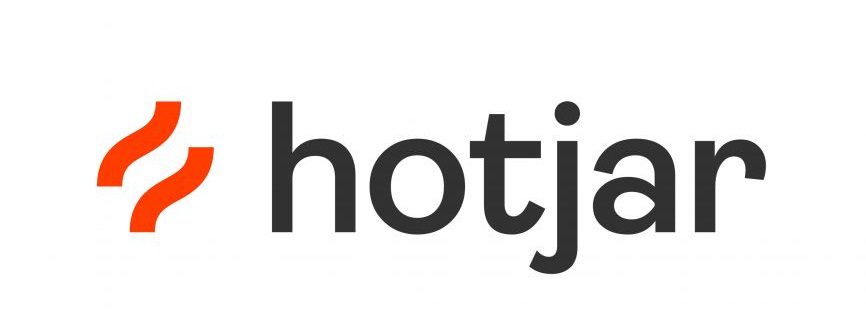Making the most of digital workspace transformation – Part 1
As working practices and norms continue to change and develop, and the debate about what works best rages on, the ability to adapt your business’ working methods quickly is growing in value. Of course, quick reactions shouldn’t come at the expense of business collaboration, or security. So, how do you clear this delicate obstacle?
The right technology and processes can make an enormous difference. Modern operating systems and software, such as Windows 10, continues to evolve and offer increased levels of flexibility for businesses and private users alike. The rise of the cloud further boosts this, with remote collaboration now near-seamless, as opposed to just a few years ago, when working from home could be challenging. This rate of development is showing no signs of slowing down.
As long-term partners of Microsoft, and experts in the use of technology like Windows 10, Microsoft Teams and Microsoft Azure, we’ve been trusted by many public and private organisations to help prepare them for the challenges presented by changing work habits. We achieve this through a distinct, four-step process we call the digital workspace quadrant.
Getting a sense of what you need to meet your unique needs should always start by taking a closer look at where your business currently stands. What technology do you currently use? How much do you pay for it? Are you using it to its full potential? Programs like Microsoft Teams can offer massive advantages to a business if used properly. We’ll take a close look to see what value can be extracted from existing tools, before looking at new ones.
From here, we’ll start to work with you to define and build your business case for change. To do this effectively, we’ll involve employees from across your business, in order to get a sense of their unique challenges, insights and ideas.
By combining this knowledge gained from your team with comprehensive audits on your technology, infrastructure and existing skillsets, we’ll pick out the ideal technological solutions for your challenges.
From here, our deployment and management expertise comes into play. We’ll make use of deployment tools like Windows Autopilot to ensure any new device delivery goes smoothly, without any setup time necessary.
We’ll also work to make device management significantly simpler. Windows Autopilot enables legacy app containerisation, which allows older Windows apps that are no longer supported to carry on running within the latest version of Windows 10. This means that, if you have an essential piece of bespoke software that’s out of date, you don’t need to immediately replace it, or jeopardise your wider security in the process.
Any technological or cultural change is a big step for a business to take, especially at a time when working culture is evolving so quickly. At XMA, we’ll work with you to make it as simple and painless as possible. From enabling new hybrid opportunities to making the most of existing tech and infrastructure, with our expert support and quality products from major vendors like Microsoft, digital workspace transformation can be that little bit easier.
To learn more about our digital workspace quadrant process, and how we can help you make the most of workplace transformation, keep an eye out for part two of this series, which focuses on keeping security high without restricting access.
Making the most of digital workspace transformation – Part 2
As widespread digital workspace transformation continues to progress, and the working standards of individuals and businesses continues to evolve, keeping pace is increasingly important. If a business is behind the curve, it becomes ever more difficult to attract and retain talent. But with the desire for remote and flexible working being higher than ever, how can you meet this need without jeopardising your business security and continuity?
XMA can help you with this. In a previous blog, we looked at how we can use an effective planning and deployment strategy to help your business embrace new ways of working. In this second blog, we’ll be looking into the ways we can help you keep control of your network, without ever laying your hands on the devices your team uses.
When people work remotely, it’s likely that the range of devices available to them will go up. For example, some people might have a powerful PC at home, while others might prefer to work from a personal tablet or phone occasionally. While this boost to staff convenience is hard to ignore, it does raise several major security concerns. As these devices are outside your management control, they could be an ideal access point for hackers and viruses. As a result, many businesses are choosing to restrict access to managed devices only.
Whether you choose to allow a varied range of devices to use your network, or supply specific machines to each member of your team, we can help. Sophisticated endpoint and access management systems, enabled by Windows 10 technology, allow you to retain control while enabling an enormous level of flexibility for your teams. This will let you simplify automated provisioning, configuration management, and software updates for every single device that uses your network, regardless of operating system.
Device management is just part of the battle. Alongside close and customisable control over access, based on your specific needs and wishes, we’ll also develop a robust and personalised data security and risk management policy. This will consider the sensitivity of your data, how much access is required for each individual, and much more.
Using the latest software and zero-trust techniques from Microsoft, including Windows 10 Authenticator for two-factor authentication, we can start to create an environment that enables digital workspace transformation, without jeopardising security for the sake of access.
Enabling cultural change is naturally important for a business, especially right now, but doing it in a way that’s sensible, safe and suitable for you is incredibly important. It’s not something to be rushed, you need to pick the right path for you. Our team will help you to pick the right path, and use the best technology from Microsoft, along with other major vendor partners, to make it a reality.
We’ll be continuing our blog series on digital transformation in the weeks to come, so keep an eye out for part three. If you’ve not read the first part, or would like a reminder, you can find it here
XMA and Keele University empower students through iPad delivery and training
In September 2020, Keele University opened a veterinary school in partnership with Harper Adams University. Keele already had a strong reputation in UK higher education, and aimed for the new veterinary school to be the best in the country.
Keele designed the new veterinary course to be highly vocational, with
lots of hands-on elements. This meant students and staff needed a device that could support a mixture of classroom and field-based learning.
Brexit Committee News Update – March 2021 Update
Now we are approaching the end of Q1 2021, the reality of the Brexit agreement is emerging with the anticipated delays becoming apparent. As a responsible and proactive partner to our customers and suppliers, we have planned throughout 2020 to address all anticipated outcomes, and we are operating processes that allow trading in the UK and EU to be achieved in the most efficient way within the new regulations.
Despite continued pressure on the international supply chain through Covid restrictions, IT parts constraints, continued exceptional demand and varying interpretation of the new rules across Europe, our experience and preparation has limited these delays for our customers. Rest assured XMA is working with all of our customers to remain at the front of service innovation to remove these delays and will continue our Brexit committee and updates until we recognise that all trading conditions have returned to a consistent and effective
What has changed?
Our customers in England, Wales and Scotland
There will be no change in process from XMA, but we have ensured all of our Suppliers are compliant with all new import requirements to maintain consistency in supply and minimise any unnecessary delays at border points.
Our customers in Northern Ireland
The UK and EU agreed and implemented a solution to minimise disruption regarding cross border
movements. XMA have gained the specific EORI number (XI) to maintain our ability to supply our customers in Northern Ireland and we are also recording the commodity codes and country of origin of products supplied. For all customers in Northern Ireland we will require their EORI number and all deliveries will operate on a Delivered Duty Paid (DDP) basis under Incoterms as this remains a UK to UK relationship. Further information on the specific requirements for trading in Northern Ireland can be found here
Our customers in Europe
XMA have a UK EORI (Economic Operators Registration and Identification number) to facilitate the movement of goods into the EEA, which became a requirement in 2021. We also record the Full commodity codes and country of origin for all products supplied and now supply commercial invoices for all shipments. For all orders into Europe we will require our customers to provide their EORI number and all deliveries will operate on a Delivered at Place (DAP) basis under Incoterms.
The future
The biggest concern over Brexit was uncontrolled delays of products arriving into the UK or being delivered to Europe, and it does appear there are initial challenges whilst new processes are fully adopted by all stakeholder groups. Overall, XMA are confident we are providing our customers with correct and effective advice to minimise any delays. We will continue to monitor this situation and where any further risk of delays are identified, work with our customers to mitigate the risk or look at alternative solutions.
If you have any questions about how XMA can support your organisation post Brexit, please contact your Account Manager or direct enquiries to: approvals@xma.co.uk







 Monitoring by Hotjar
Monitoring by Hotjar